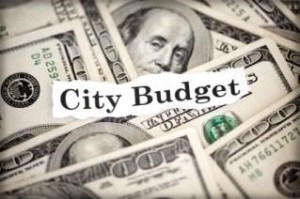Last week’s DC Council committee “mark-ups” resulted in increased funding for a variety of programs that will help meet the needs of low-income residents. During mark-ups, each Council committee gets a chance to change the proposed funding for agencies and programs they oversee.
The committee mark-ups are an important part of the budget process, but not the end! The mark-up results are sent to the Council for consideration at its vote on the full budget on May 17. Further changes to the budget will likely occur at that point.
Below is a summary of some of the major committee mark-up changes that affect low- and moderate-income residents.
Health and Human Services
- $350,000 for the Office on Aging for Senior Villages and transportation services.
- $900,000 to increase slots for Rapid Rehousing for individuals.
- $1 million to expand an existing grant (the Urban Health Initiative) to allow a university hospital to expand patient centered care for substance use disorder patients.
- $1,200,000 to support the Produce Plus Farmers Market Subsidy program.
- $380,000 to further expand Joyful Markets, which allows monthly pop-up food markets to all public elementary schools in Ward 7 and Ward 8.
- $250,000 to support a food access program that assists small retailers and corner store owners to stock and sell fresh, healthy food.
- $1,200,000 to augment the school-based health clinics at Coolidge High School, Dunbar High School, and H.D. Woodson High School to support behavioral health screening, community engagement, and real-time tele-video linkages to behavioral health providers.
- $500,000 for HIV/AIDS Housing and Supportive Services.
- $500,000 for Rapid Housing stipends and other supportive services for youth emancipating from foster care.
- $300,000 to restore a cut Safe Shores, which provides services for abused and neglected children.
Housing and Community Development
- $423,000 to the DC Housing Authority to provide rental subsidies to approximately 20 elderly returning citizens.
- $200,000 to hire three new public safety officers to patrol DC Housing Authority properties.
- $544,000 to provide seed money to tenant associations seeking to buy their building. Tenant associations would use to funds to pay for legal and technical reports required to exercise their tenant purchase (TOPA) rights and to apply for assistance from the city under the First Right Purchase Program.
Education
- $1 million to the Healthy Tots program, which helps early childhood centers provide nutritious meals and snacks, use locally grown food, and strengthens standards for physical activity at these centers.
- $1.8 million to increase reimbursement rates paid to early care and education centers and homes for children in the District’s subsidized child care program. A recent report by the DC Fiscal Policy Institute and DC Appleseed cites the need for at least $38 million more to help providers cover the costs of providing quality early care and education. The $1.8 million will come from re-directing a portion of $3.6 million in new funding to improve the quality of child care.
- $200,000 to support college access and college readiness programs.
- $10 million to enhance the six-year school capital budget.
Legal and Domestic Violence Services
- $400,000 to address cuts to grants to local victim services and social justice and legal services providers.
- $719,000 to replace funding that was lost when the Freddie Mac Foundation closed for domestic violence shelter and housing services.
- $150,000 for the Alternatives to the Court Experience Diversion Program, a juvenile justice youth diversion program.
- Increased staffing at the Office of Attorney General to fund a new Victims Specialist, and at the Office of Human Rights to handle the case backlog for the Fair Criminal Record Screening Amendment Act of 2014 (“Ban the Box”), which prohibits employers from asking job applicants about their criminal background prior to making a job offer.
Stay tuned for more budget updates in the District’s Dime!
To print a copy of today’s blog, click here.
